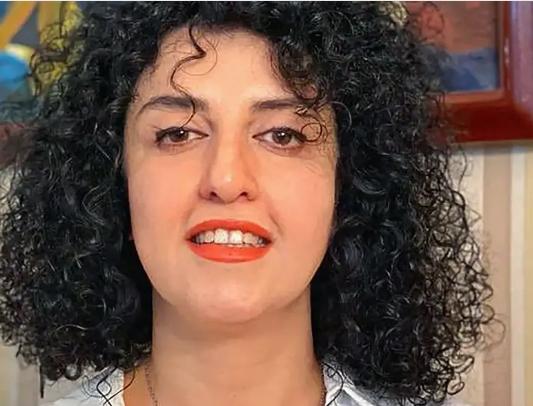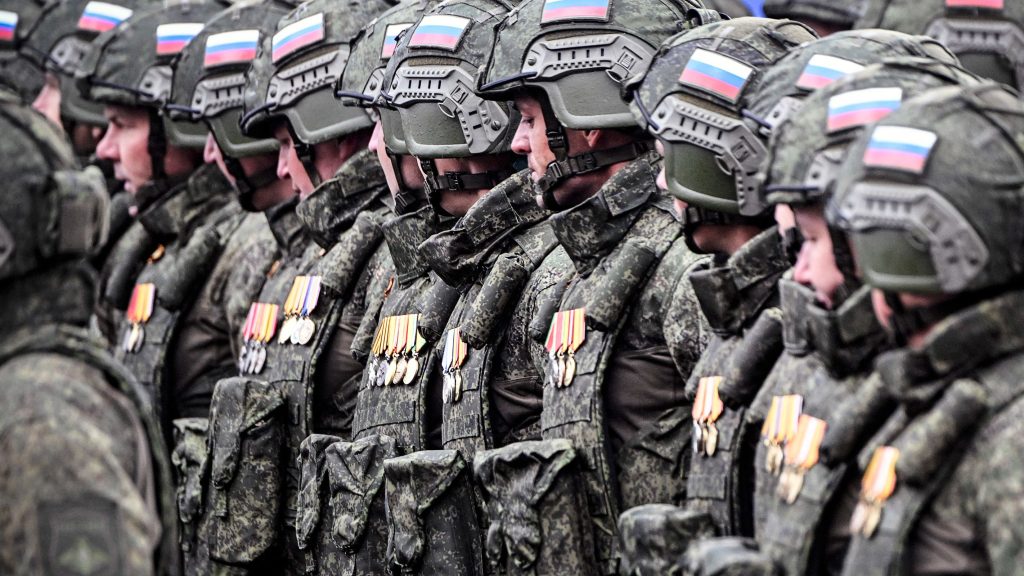Headline
Iran Women’s Activist Narges Mohammadi Wins Peace Nobel

The Nobel Peace Prize was awarded on Friday to imprisoned activist Narges Mohammadi for her fight against the oppression of women in Iran, many of whom are removing their hijabs despite a harsh crackdown.
Mohammadi’s award comes after a wave of protests swept Iran following the death in custody a year ago of a young Iranian Kurd, Mahsa Amini, arrested for violating Iran’s strict dress rules for women.
A 51-year-old journalist and activist, Mohammadi has spent much of the past two decades in and out of jail for her campaign against the mandatory hijab for women and the death penalty.
Speaking to AFP, the head of the Norwegian Nobel Committee urged Iran to release Mohammadi, a call echoed by the United Nations.
“I appeal to Iran: Do something dignified and release the Nobel laureate Narges Mohammadi,” committee chairwoman Berit Reiss-Andersen said.
The recent protests in Iran “accelerated the process of realising democracy, freedom and equality in Iran”, a process that is now “irreversible”, Mohammadi told AFP last month in a letter written from her prison cell.
READ ALSO: Norwegian Author Wins 2023 Nobel Prize For Literature
She and three other women held with her at Tehran’s Evin prison burned their hijabs to mark the anniversary of Amini’s death on September 16.
– Crackdown –
Mohammadi, who flaunts long black curls and had been mentioned as a possible winner ahead of the announcement, was honoured “for her fight against the oppression of women in Iran and her fight to promote human rights and freedom for all”, Reiss-Andersen said.
“Her brave struggle has come with tremendous personal costs. Altogether, the regime has arrested her 13 times, convicted her five times and sentenced her to a total of 31 years in prison and 154 lashes,” she added.
Mohammadi is the vice-president of the Defenders of Human Rights Centre founded by Iranian human rights lawyer Shirin Ebadi, who herself won the Peace Prize in 2003.
Iran is ranked 143rd out of 146 countries on the World Economic Forum’s gender equality ranking.
Authorities cracked down harshly on last year’s “Woman, Life, Freedom” uprising — the words Reiss-Andersen used to begin Friday’s announcement, in English and Farsi: “Zan, Zendegi, Azadi”.
READ ALSO: Agostini, Krausz, L’Huillier Win Nobel Prize For Physics
A total of 551 protesters, including 68 children and 49 women, were killed by security forces, according to Iran Human Rights, and thousands of others were arrested.
The uprising has continued, albeit under other forms.
In what would have been unthinkable a year ago, women now go out in public without the headscarf, in particular in Tehran and other big cities, despite the risks.
A 16-year-old girl is currently in a coma after being attacked on Sunday by female police officers tasked with enforcing the mandatory hijab among other things, according to the Kurdish-focused rights group Hengaw.
Wearing the hijab is one of the pillars of the Islamic republic.
Authorities have stepped up controls, using surveillance cameras among other things, and have arrested actresses who post pictures of themselves on social media without the hijab.
In September, Iran’s conservative-dominated parliament announced heavier penalties for women who refuse to wear it.
READ ALSO: Nobel Peace Prize: UN Chief, Guterres Congratulates Journalists Ressa, Muratov
– ‘No prospect of freedom’ –
“This year’s Peace Prize also recognises the hundreds of thousands of people who in the preceding year have demonstrated against the theocratic regimes policies of discrimination and oppression targeting women,” Reiss-Andersen said.
She called Mohammadi the “undisputed leader” of the uprising.
Mohammadi’s family said the prize was a “historic and profound moment for Iran’s fight for freedom”, while the United Nations called for “her release and the release of all human rights defenders jailed in Iran”.
Incarcerated this time since November 2021, Mohammadi has not seen her children, who live in France with her husband, for eight years.
Considered a “prisoner of conscience” by Amnesty International, she told AFP in her letter that she had “almost no prospect of freedom”.
She is the second Iranian to win the Nobel Peace Prize after Ebadi.
In 2003, Ebadi defied conservative Iranians by refusing to wear the hijab when she received her prize in Oslo.
If she remains behind bars, Mohammadi will not be able to make the trip to Oslo to receive her award at the annual prize ceremony on December 10.
The Peace Prize has on five occasions honoured jailed activists, including last year when it went to Ales Bialiatski of Belarus, whose prize was accepted by his wife, and Chinese dissident Liu Xiaobo in 2010, whose chair remained empty.
Headline
Insecurity: US Congressman Riley Moore Reveals Trump’s Mission In Nigeria

US Congressman Riley Moore has dismissed insinuations that President Donald Trump is attempting to bring war to Nigeria.
Moore made the remark in a post on his verified X handle on Monday.
His comments followed a US military airstrike on a terrorist enclave in north-west Nigeria on Christmas Day, reportedly carried out on the directive of President Trump.
“President Trump is not trying to bring war to Nigeria, he’s bringing peace and security to Nigeria and to the thousands of Christians who face horrific violence and death.
READ ALSO:Russia Calls up 135,000 Military Personnel
“The strikes against ISIS on Christmas, in coordination with the Nigerian government, have given hope to the Christians in Nigeria,” he said.
Recall that the lawmaker had previously stated that President Trump is focused on ending the killing of Christians in Nigeria.
It will be recalled that Moore led a US delegation on a fact-finding mission into alleged Christian genocide in Nigeria some weeks ago.
During his brief stay in the country, Moore travelled to Benue State, where he interfaced with religious and traditional leaders, as well as internally displaced persons.
Headline
Russia Calls up 135,000 Military Personnel

Russia has enlisted 135,000 conscripts for military service in 2026, following the conclusion of the autumn army draft by the Defense Ministry.
A statement on Monday said most personnel have been assigned to training units and military formations where they will “get a military specialty and learn to operate modern military hardware.”
The conscripts can choose to serve in any of the various military branches and armed services after an assessment of their health condition and the results of psychological examinations.
READ ALSO:Russian Strike On Odesa Region Kills Eight, Injures 27
The ministry disclosed that 680 recruits have joined scientific and research-production units, while 240 from the country’s national teams in Olympic disciplines joined sports companies.
However, military personnel who have served the established term of military service have been discharged and sent to their places of residence.
The latest enlistment confirms Russia is shoring up its troops deployed to the ongoing special military operation in Ukraine ahead of the new year.
READ ALSO:Putin Says Russia Ready For War, Blames Europe For Sabotaging Peace
A fortnight ago, European leaders reaffirmed their pledge to form a multinational force–under the aegis of the Coalition of the Willing–to assist Ukraine in securing land, skies, and seas.
The pledge is one of the six commitments the EU and heads of state developed for Ukraine’s security and economic recovery support measures.
In an interview with TASS on Sunday, Russian Foreign Minister Sergey Lavrov condemned Europe’s insistence on sending military forces to Ukraine.
“We have said many times that our Armed Forces would view them as a legitimate target,” he said, warning that anyone who attacks Russia would face “a devastating blow.”
Headline
How Our Airstrikes Stopped Christmas Attacks In Nigeria — US Lawmaker

Riley Moore, a member of the United States House of Representatives from West Virginia’s 2nd District, has linked the absence of Christmas attacks in Nigeria this year to US military airstrikes carried out against Islamist militants on Christmas Day.
In a post on his official X account on Saturday, Moore contrasted the situation with the past two Christmas seasons, during which he claimed Christians were killed in attacks across parts of Nigeria.
The lawmaker noted that this year’s response targeted extremist groups instead of marking another period of violence.
READ ALSO:Rep Moore Confirms 12 Tomahawk Missiles Launched In Sokoto
He added that US forces acted decisively against militants in coordination with the Nigerian government.
“For the past two Christmases, Christians have been murdered in Nigeria. This year, thanks to @POTUS, Radical Islamic Terrorists were on the receiving end of 12 Tomahawk missiles as a present.
“The successful strikes on ISIS, in coordination with the Nigerian government, are just the first step to secure the country and end the slaughter of our brothers and sisters in Christ,” Moore wrote.
US President Donald Trump said on Thursday that American forces had conducted deadly strikes against Islamic State terrorists in north-western Nigeria.
Trump, who spoke via his Truth Social platform, warned that more attacks would follow if the militants continued killing Christians, adding that the Department of War executed numerous “perfect strikes.”

 Headline4 days ago
Headline4 days agoJUST IN: US Forces Bomb Terrorists Camps In Nigeria

 News5 days ago
News5 days agoOkpebholo Slams ₦25bn Libel Suit On Edo PDP Chairman

 Headline4 days ago
Headline4 days agoUS Dept Of War Shares Video Of Air Strikes In Nigeria

 News4 days ago
News4 days agoPHOTOS: SGF George Akume Weds Ooni’s Ex-Queen

 News1 day ago
News1 day agoBREAKING: Anthony Joshua Involved In Road Accident

 News4 days ago
News4 days agoTrump’s Airstrikes: Halt Military Cooperation With US Immediately – Sheikh Gumi Tells Tinubu Govt

 News2 days ago
News2 days agoEx-Edo Gov Obaseki Reacts As His Cousin Is Beaten, Stripped

 News4 days ago
News4 days agoShehu Sani Reacts To Trump’s Military Strikes In Nigeria

 Headline4 days ago
Headline4 days agoU.S. Lawmaker Reacts To Nigeria, U.S. Airstrikes

 Metro2 days ago
Metro2 days agoObaseki Beaten, Stripped In Edo




















